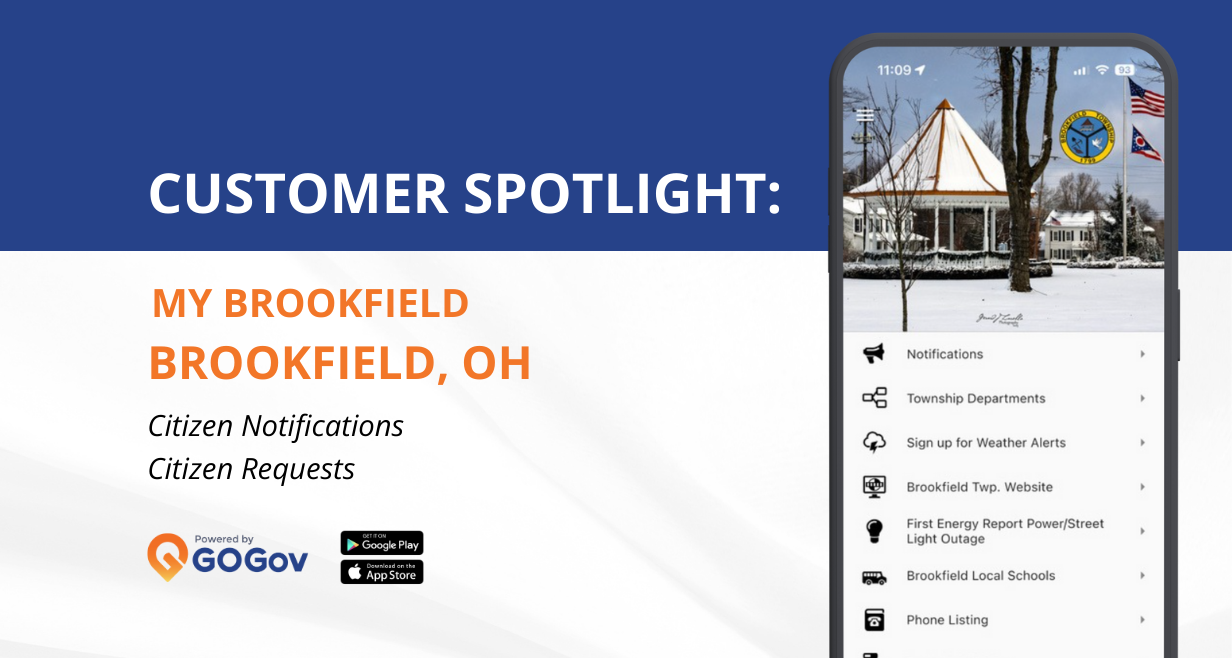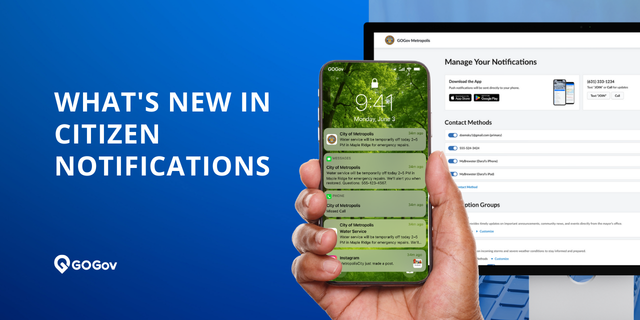Departments

Administrative


IT


Building


PIO


Clerks


Police & Fire

Code Enforcement


Public Works


Elected Officials



"We already have Facebook – why do we need a mobile app and citizen notification system?"
This myth has become one of the most common objections local government administrators hear when discussing digital communication strategies. On the surface, it seems logical: Facebook is free, most people have accounts, and it's easy to post updates.
But here's the reality check: relying on Facebook for citizen communications is like shouting important announcements into a crowded restaurant and hoping the right people hear you.
A recent example from North Texas proves this point perfectly. Rhome's city administrator Amanda DeGan said she often works from home in order to respond to comments and answer questions on the city's Facebook page on topics including boil notices and upcoming events. Think about that for a moment – a city administrator working from home to manage Facebook posts about critical infrastructure issues like boil water notices.
DeGan said Rhome is saying goodbye to Facebook and will use an app called Rhome Connect powered by GOGov to communicate important information directly to residents. Why? Because they discovered what many local governments are learning the hard way: Facebook simply isn't reliable for essential citizen communications.
Let's bust this myth once and for all and examine why local government mobile apps and dedicated citizen notifications systems aren't just nice-to-have tools – they're essential for effective municipal communication.
The Hidden Problems with Facebook-Only Communication
Algorithm Chaos: Your Posts Aren't Reaching Your Citizens
Facebook's algorithm is designed for one thing: keeping users engaged with content that drives advertising revenue. Your emergency road closure announcement? It might show up in residents' feeds – or it might get buried under cat videos and political memes.
DeGan said she learned that many citizens don't use Facebook to get their information, and the social media platform's algorithms mean that some see information from Rhome and others don't.
The Numbers Don't Lie:
- Average Facebook post reach: 5.2% of followers
- Facebook algorithm prioritizes personal content over organizational posts
- Only 35% of your Facebook followers will see your posts in their news feed
- Emergency posts compete with entertainment content for attention
Real-World Impact: If your city has 1,000 Facebook followers, only about 50 people typically see your posts. For critical information like water main breaks, road closures, or critical alerts, this means 95% of your followers miss important updates.
The Staff Burnout Factor
Facebook communication isn't "free" – it's expensive in ways that don't show up in your budget. The city administrator often worked from home to respond to Facebook posts. This is the hidden reality for many local government staff members who find themselves:
- Monitoring Facebook 24/7 for citizen comments and questions
- Responding to social media during off-hours because emergencies don't follow business schedules
- Managing inappropriate comments and dealing with social media drama
- Competing with the algorithm by constantly posting to maintain visibility
- Duplicating efforts by posting the same information across multiple platforms
The True Cost: When your city administrator is working from home to manage Facebook posts, that's taxpayer money being spent on social media management instead of core municipal services.
Citizen Exclusion: The Demographics Facebook Misses
Believing that "everyone is on Facebook" is a dangerous assumption that excludes significant portions of your community:
Age-Related Gaps:
- Adults 65+ are the fastest-declining Facebook demographic
- Young professionals (25-35) increasingly abandon Facebook for other platforms
- Teenagers and young adults actively avoid Facebook
Digital Preference Differences:
- Many residents prefer text messages or app notifications for urgent information
- Others want dedicated government information sources, not social media
- Professional citizens expect official communication channels, not social platforms
The Misinformation Problem
Facebook's comment sections can quickly become breeding grounds for misinformation, conspiracy theories, and community conflicts. Local government posts about:
- Public health measures attract consipercy theories
- Development projects generate NIMBY controversies
- Traffic changes become platforms for political complaints
- Critical information gets overshadowed by speculation and rumors
Staff time spent moderating comments and correcting misinformation could be better used serving citizens through direct, professional communication channels.
Why Local Government Mobile Apps Solve Facebook's Problems
Direct Communication That Actually Reaches Citizens
A local government mobile app with citizen notifications eliminates the algorithm lottery entirely. When you send a push notification about a water main break:
- App users receive the notification right away
- Messages appear immediately on users' phone screens
- No competition with social media content for attention
- Professional presentation maintains government credibility
Delivery Statistics:
- Push notifications have a 95% open rate
- SMS messages have a 98% open rate
- App notifications are read within 3 minutes on average
- Users can't "miss" important information in cluttered feeds
Multi-Channel Citizen Notifications for Maximum Reach
Instead of hoping Facebook's algorithm favors your post, citizen notification systems let you reach residents through their preferred communication methods:
Push Notifications: Instant alerts for urgent information like emergency road closures or boil water notices
SMS Text Messages: Reliable communication that works on any phone, reaching citizens who don't use smartphones or social media
Email Alerts: Professional communication for detailed information like meeting agendas, policy changes, or community updates
Socail media: Platforms like Facebook and Tiwtter/X can be a valubale piece of your communication for some messages like events, road closures and more.
Professional Control and Presentation
Local government mobile apps provide a professional environment where:
- Information stays accurate without public comment speculation
- Official branding reinforces trust and authority
- Organized content makes it easy for citizens to find what they need
- No advertising competes with your message
- Document storage provides easy access to permits, forms, and official information
Staff Efficiency and Work-Life Balance
Unlike Facebook management, citizen notification systems respect staff time and professional boundaries:
- Scheduled messaging allows staff to prepare communications during business hours
- Automated alerts for routine notifications (meeting reminders, deadline notices)
- Professional environment eliminates after-hours social media monitoring
- Analytics and metrics show actual communication effectiveness
The Rhome Example: A Texas City's Smart Decision
Rhome still posts to Facebook but its very rare now that the app is available for download. The app is being promoted with signs featuring QR codes for the new app around the city. This North Texas city recognized that effective citizen communication requires more than hoping Facebook's algorithm cooperates.
By switching to GOGov's citizen notification system, Rhome is:
- Eliminating administrator overtime spent managing Facebook posts from home
- Ensuring critical information reaches all residents, not just those who happen to see Facebook posts
- Creating professional communication standards that reflect well on city government
- Providing multiple ways for citizens to receive important updates
The Results: Direct communication that actually reaches citizens when they need information most.
The Multi-Channel Communication Advantage
The most effective local government mobile apps don't replace all communication – they create a reliable foundation that makes other channels more effective:
Critical Situations: Push notifications and SMS ensure immediate awareness, while Facebook can provide supplementary details and community discussion
Routine Updates: App notifications deliver reliable information to engaged citizens, while Facebook reaches those who prefer social media
Community Engagement: Apps provide official information and service access, while social media can foster community discussion and feedback
Public Meetings: Push notifications ensure better attendance, while Facebook can share highlights and encourage participation
Common Facebook Myths vs. App Reality
Myth: "Facebook is free, apps cost money"
Reality: Facebook requires significant staff time for monitoring, posting, and engagement. Apps eliminate overtime and reduce administrative overhead while providing guaranteed message delivery.
Myth: "Everyone uses Facebook"
Reality: Many citizens don't use Facebook to get their information, according to Rhome's experience. Apps reach citizens regardless of social media preferences.
Myth: "We get good engagement on Facebook"
Reality: Facebook engagement includes arguments, complaints, and off-topic comments. App notifications focus on information delivery and professional service access.
Myth: "Apps are too complicated for older residents"
Reality: Modern local government mobile apps are designed for simplicity, and SMS and voice integration ensures all users receive important information.
Multi-channel communiocation for Lcoal Governments Powered by GOGov
Facebook might be useful for community engagement and informal updates, but local government mobile apps with comprehensive citizen notification systems provide the reliability, professionalism, and effectiveness that municipal communication requires.
As Rhome, Texas discovered, when your city administrator is working from home to manage Facebook posts about boil water notices, it's time to acknowledge that Facebook isn't working for essential government communication.
The choice is clear:
- Continue hoping Facebook's algorithm shows your emergency posts to residents
- Or guarantee that critical information reaches citizens directly, professionally, and immediately
Local government mobile apps aren't competing with Facebook – they're providing the reliable communication foundation that every municipality needs, while allowing social media to serve its appropriate role as a community engagement supplement.
Your citizens deserve better than algorithm-dependent communication for essential government services. They deserve citizen notifications that work every time, and local government mobile apps that put important information at their fingertips.
Ready to move beyond Facebook dependency and provide reliable citizen communication? Schedule a demo with the GOGov team to see how local government mobile apps and citizen notifications can transform your municipal communication strategy.









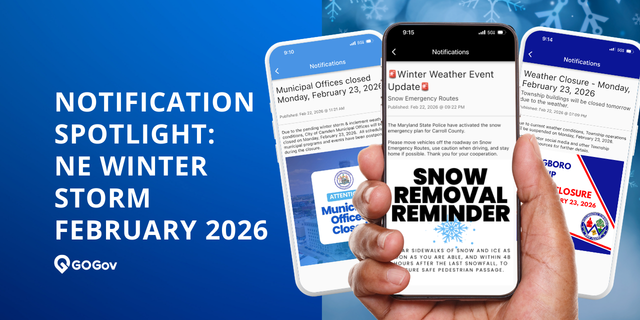
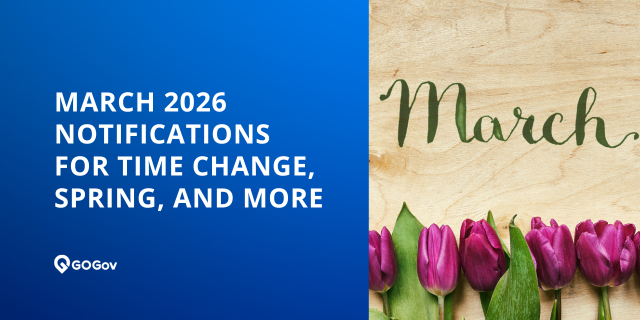
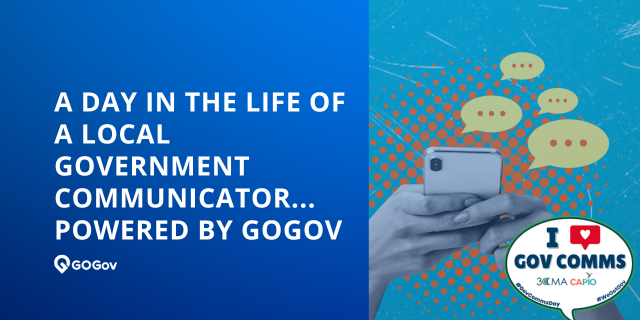
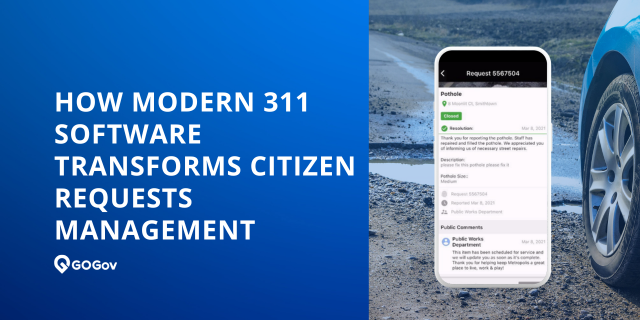
.png)
.png)
